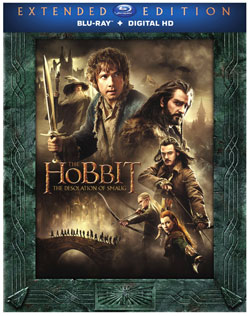It was a few years before the first Tolkien-based film trilogy hit the theatres when I was avidly reading the Kalevala.
As I was insanely passionate about the old Nordic cultures, anything
that would delight me with a taste of it was welcome. As expected, I
became enraptured with Tolkien's world once I could see how deep its
roots grew into the Nordic myths. The Professor was a fan of
it, as much as I was myself.
It happened that the Kalevala bit that impressed me the most was the story of Kullervo.
The news hit me like thunder. It was glorious seeing that book finally come to life, yet it was bittersweet somehow This was because, in spite of it being published 100 years later, it was a bit early for me. I've always wanted to point out J.R.R. Tolkien's involvement with the Finnish epic, Kalevala, which The Story of Kullervo is a part of. I don't have the time to write the book I would've liked to write on this topic, sadly. I wish I had continued my research, but now I'm expecting others to do that, with this newly released book.
I was a teenager and a true fan of Northern epics when I got my hands on the Kalevala, the Finnish collection of myths and lore, and read it several times. Very soon after that, it was J.R.R. Tolkien to influence my existence for good. The two - Tolkien and Finland (I cannot just say Lonnrot here) then became intertwined in a magical way. I loved Kalevala. Tolkien loved it, too. More than 10 years later, I finally read The Children of Hurin - the masterpiece in the shadow of The Lord of the Rings and The Silmarillion, the book that draws its fascinating and tragic substance out of the ancient Finnish story of Kullervo.
The Story of Kullervo is what it is: the life of the slave Kullervo retold by J.R.R. Tolkien, much better developed than in its original form to be found in Kalevala. It is a 100% Finnish story of old times and is in no way connected to Middle-earth. The names of the characters also belong to the Finnish tradition and are no inventions.
Many are wondering where does this book stand among all the other works of the professor. Hence it's got no real connexions to his Arda, we can place it on a different shelf. Yes, it contains the substance the author used later to create The Children of Hurin, but only the latter was set in Middle-earth. It may be confusing, but the average Tolkien fan needs to know that this late publishing comes from the writer;s youth and is not included in his fictional universe. It is, however, the book that later made him give birth to his darkest work.
The Story of Kullervo will hit the shelves in October 2015. It makes for a precious addition to a fan's collection, but it won't add to the beloved fictional world. However, it will reveal a wonderful source of all that - one of Tolkien's best appreciated sources of inspiration.
It happened that the Kalevala bit that impressed me the most was the story of Kullervo.
The news hit me like thunder. It was glorious seeing that book finally come to life, yet it was bittersweet somehow This was because, in spite of it being published 100 years later, it was a bit early for me. I've always wanted to point out J.R.R. Tolkien's involvement with the Finnish epic, Kalevala, which The Story of Kullervo is a part of. I don't have the time to write the book I would've liked to write on this topic, sadly. I wish I had continued my research, but now I'm expecting others to do that, with this newly released book.
I was a teenager and a true fan of Northern epics when I got my hands on the Kalevala, the Finnish collection of myths and lore, and read it several times. Very soon after that, it was J.R.R. Tolkien to influence my existence for good. The two - Tolkien and Finland (I cannot just say Lonnrot here) then became intertwined in a magical way. I loved Kalevala. Tolkien loved it, too. More than 10 years later, I finally read The Children of Hurin - the masterpiece in the shadow of The Lord of the Rings and The Silmarillion, the book that draws its fascinating and tragic substance out of the ancient Finnish story of Kullervo.
The Story of Kullervo is what it is: the life of the slave Kullervo retold by J.R.R. Tolkien, much better developed than in its original form to be found in Kalevala. It is a 100% Finnish story of old times and is in no way connected to Middle-earth. The names of the characters also belong to the Finnish tradition and are no inventions.
Many are wondering where does this book stand among all the other works of the professor. Hence it's got no real connexions to his Arda, we can place it on a different shelf. Yes, it contains the substance the author used later to create The Children of Hurin, but only the latter was set in Middle-earth. It may be confusing, but the average Tolkien fan needs to know that this late publishing comes from the writer;s youth and is not included in his fictional universe. It is, however, the book that later made him give birth to his darkest work.
| Kullervo, by Finnish painter Akseli Gallen-Kallela |
The Story of Kullervo will hit the shelves in October 2015. It makes for a precious addition to a fan's collection, but it won't add to the beloved fictional world. However, it will reveal a wonderful source of all that - one of Tolkien's best appreciated sources of inspiration.






.jpg)




.jpg)

